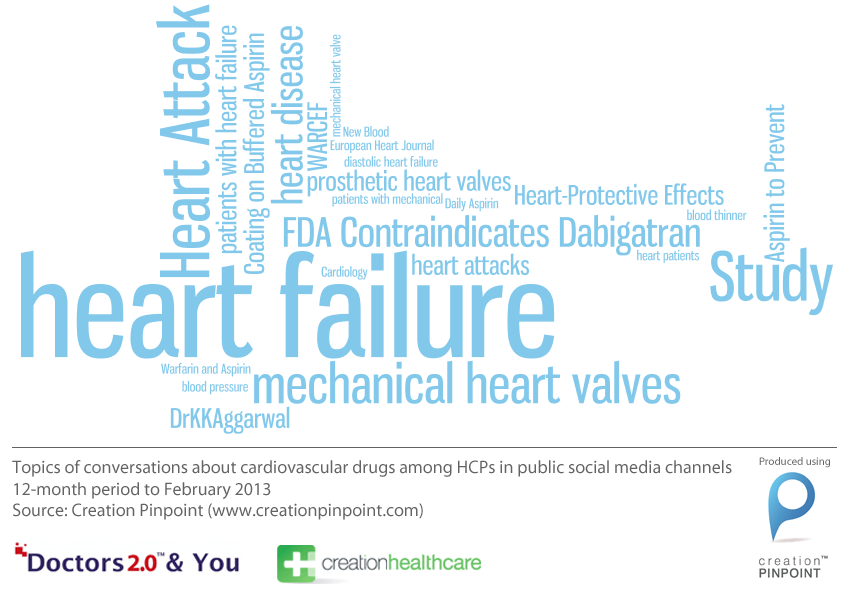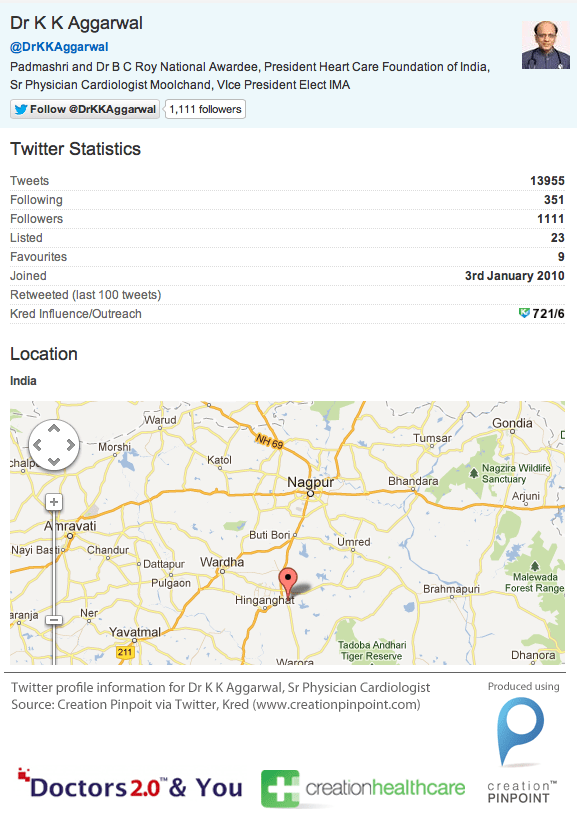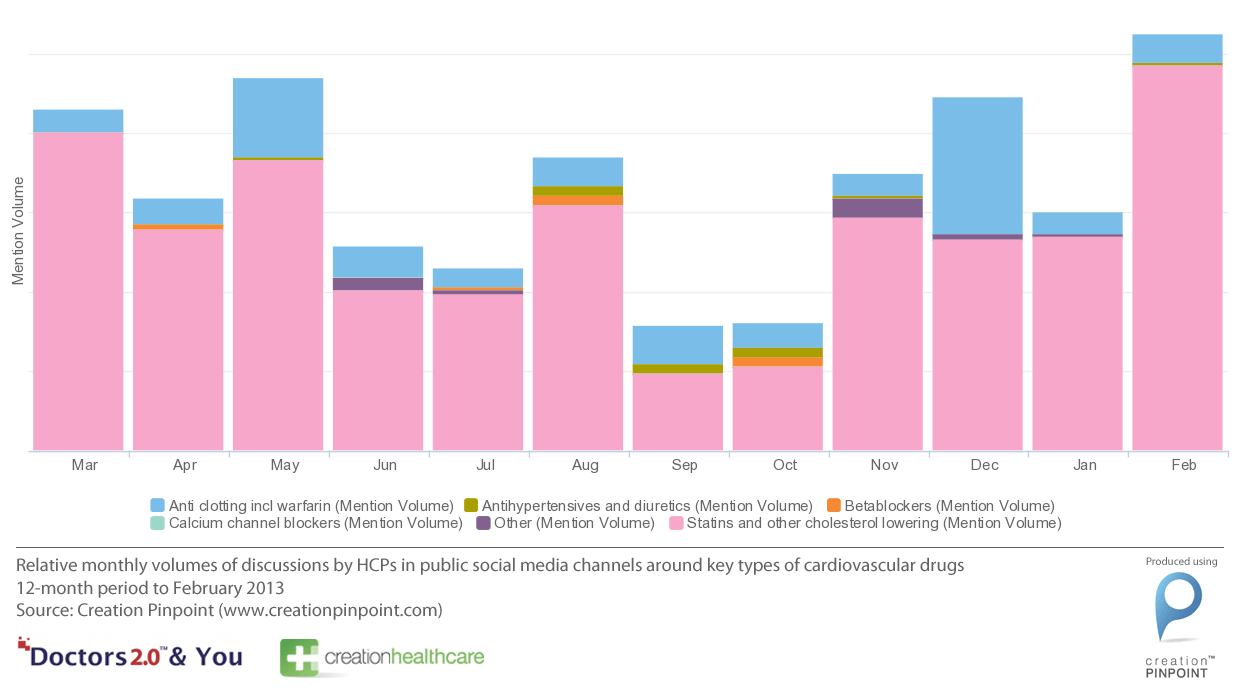As part of Creation Healthcare’s research partnership with Doctors 2.0 & You, which uses Creation Pinpoint to analyse conversations among Healthcare Professionals (HCPs) in public social media channels about cardiovascular disease, I will be sharing some highlights of our work. Here is a first look at what we are discovering about HCPs discussing cardiovascular topics.
Cardiovascular (CV) drugs: what are HCPs saying?
One of the areas we are interested in learning about is what doctors are saying about cardiovascular (CV) drug. We looked for conversations taking place between HCPs mentioning the main classes of cardiovascular drugs, such as statins, beta-blockers and calcium channel-blockers, over the past year.
The topic cloud below summarises the content of these conversations.

Figure 1: Topics of conversations about cardiovascular drugs among HCPs in public social media channels over past year
HCPs are clearly discussing cardiovascular drugs online. The topic cloud shows that:
- Heart failure was frequently discussed. Closer examination of the data shows this is due to the WARCEF trial (also featured in the cloud), which looked at aspirin and warfarin in heart failure patients
- News such as the FDA contraindication of dabigatran in patients with mechanical heart valves, and that the coating on buffered aspirin may interfere with its heart-protective effects, was also important in HCP conversations around drug classes in the past year
- The user DrKKAggarwal was important in conversations, as his name appears in the cloud – content posted by him online has been mentioned by others, and he has personally also been particularly active. He is the President of the Heart Care Foundation of India and is active in Twitter, Facebook, LinkedIn and on his own blog, http://drkkaggarwal.blogspot.co.uk. Let’s take a look at Dr Aggarwal’s Twitter profile data:
CV drugs: discussion volumes
The following chart shows the relative discussion volumes for the cardiovascular drug types.
This reveals that statins were by far the most discussed class of drug during the study period. There are peaks in discussion levels around anti-clotting drugs, which correspond to announcements such as the FDA contraindication of dabigatran and trials relating to warfarin vs. aspirin.
How can insights such as these be relevant to you?
These types of insights can be relevant in a number of ways:
- For a pharmaceutical company, understanding how products are discussed by those prescribing them. This includes the drugs and devices produced by a particular company, as well as competing products. Such information can then be used to improve products (for more on how online conversations can be used to improve products, read about the Roche diabetes story), or to create more effective marketing and communications campaigns.
- Discovering the studies and events that HCPs talk about online. In this case, the WARCEF trial was a popular topic of discussion. Can you create loyalty to your brands through providing information on hot topics that HCPs would want to share? Do you need to be more involved in particular congresses?
- Identifying Digital Opinion Leaders (DOLs). These are the individuals who can influence conversations online in your areas of interest. In the example above, KK Aggarwal would be considered a DOL, as he is a specialist in cardiology who has been heavily involved in online discussions. Once DOLs are identified, you may then wish to consider strategies for engagement and development. Read more about this in Daniel Ghinn’s e-book, Activating Digital Opinion Leaders.
What’s next
Watch this space for further articles revealing cardiovascular therapy area insights, including geographical and language analyses and identification of Digital Opinion Leaders. The final research report will be presented at Doctors 2.0 & You in Paris on 6-7 June 2013.



